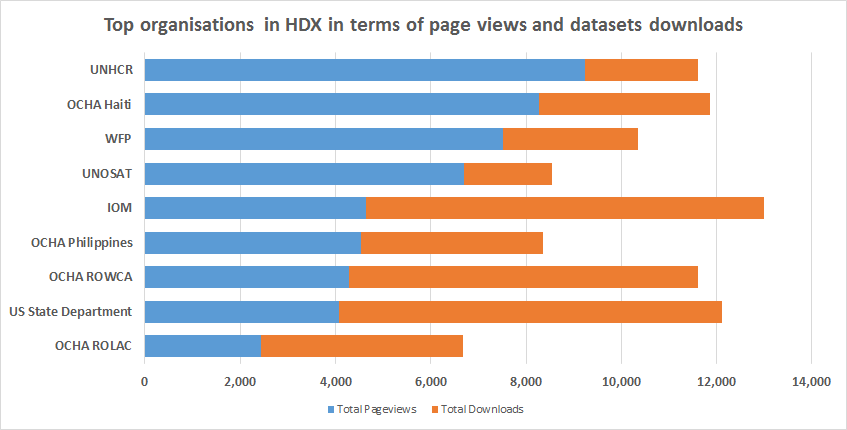Share
The Humanitarian Data Exchange (HDX) continued to gain traction in 2016. The platform includes over 4,400 datasets covering a variety of humanitarian crises. This growth would not be possible without the support and contributions of our partner organisations.
By the end of 2016, there were 258 organisations registered on HDX, 70% of which were sharing data. Over 50 new organisations joined over the year, with on average four new organisations joining each month. The chart on the right shows the trajectory of organisations joining HDX since our beta launch in July 2014.
Number of Registered Organisations on HDX
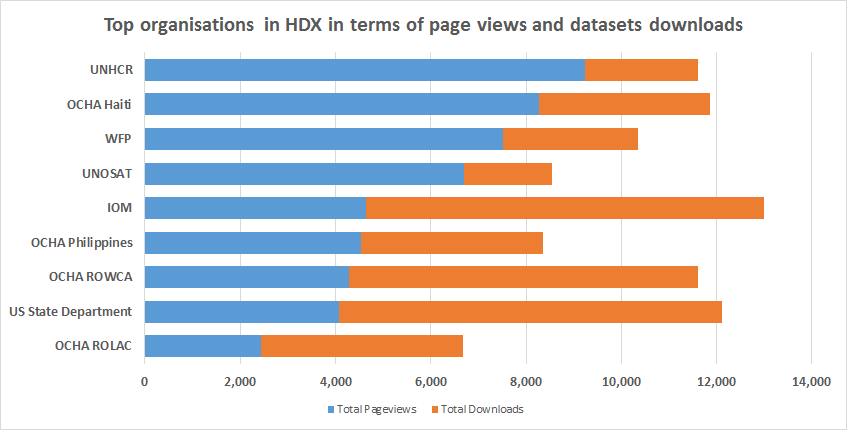
*In cases where there are more downloads than pageviews, the data was accessed directly using the HDX Python API rather than through the web interface.
UNOSAT and UNHCR contributed the largest number of datasets throughout 2016. Below is a comparison of the top data-contributing organisations and the total pageviews and downloads of the data they shared.
The following is a closer look at a few of the new organisations on HDX:
Worldpop is sharing datasets on population enumeration estimates per square kilometer for various years and countries. This data is required to determine the number of people in need after a natural disaster or a violent conflict. For example, during the Ecuador Earthquake, this dataset was very useful to estimate the number of affected people. Explore more datasets from Worldpop here.
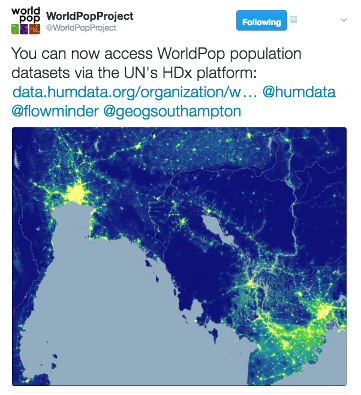
African Development Bank Group (AfDB) contributes to poverty reduction by stimulating economic development and social progress among its regional member countries. They are sharing data on market prices and food security across Africa. Explore the socio-economic indicators of all African countries here.
RedHum Ecuador is an OCHA-supported humanitarian group. They provided 13 rounds of updates about who was responding where following April’s earthquake in Ecuador. Explore the data and an interactive visualisation here.
The International Federation of Red Cross and Red Crescent Societies (IFRC) is the world’s largest humanitarian organisation with 190 national societies. They shared data on damage assessments in the aftermath of Hurricane Matthew, which struck Haiti in October. Take a closer look at this data here.
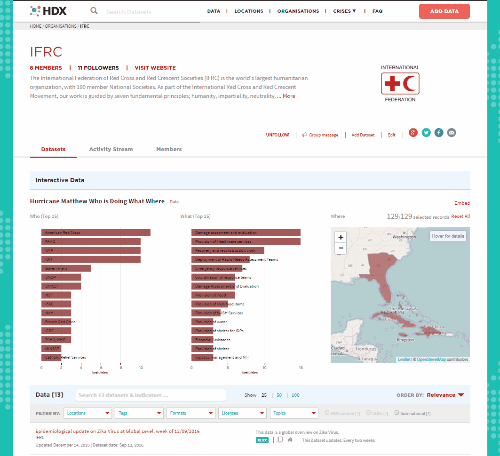
The Netherlands Red Cross joined HDX in October and shared impact assessments for typhoons in the Philippines and Hurricane Matthew in Haiti. Additionally, through their 510 Global data innovation initiative, they have developed and shared priority indices to help predict which locations will have the highest needs. Learn more about the data and index here.
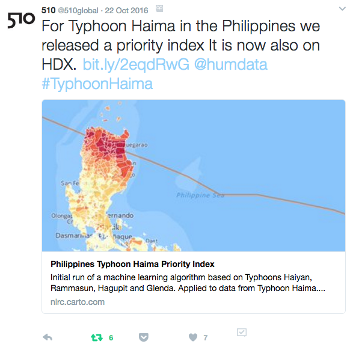
We are also grateful for the continued support of organisations that have been active on HDX for a while. This includes ACLED, Flowminder, IOM, UNISDR, WFP and a number of OCHA offices.
If your organisation is interested in collaborating with us, please register through HDX or write to us at hdx@un.org. You can also read our FAQ for more information. We look forward to working with you in 2017.
